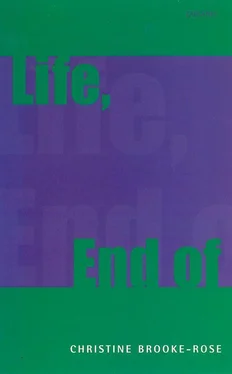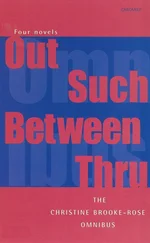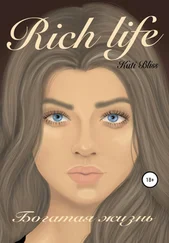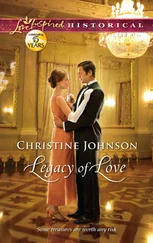Christine Brooke-Rose - Life, End of
Здесь есть возможность читать онлайн «Christine Brooke-Rose - Life, End of» весь текст электронной книги совершенно бесплатно (целиком полную версию без сокращений). В некоторых случаях можно слушать аудио, скачать через торрент в формате fb2 и присутствует краткое содержание. Год выпуска: 2012, ISBN: 2012, Издательство: Carcanet Press Ltd., Жанр: Современная проза, на английском языке. Описание произведения, (предисловие) а так же отзывы посетителей доступны на портале библиотеки ЛибКат.
- Название:Life, End of
- Автор:
- Издательство:Carcanet Press Ltd.
- Жанр:
- Год:2012
- ISBN:9781847775726
- Рейтинг книги:5 / 5. Голосов: 1
-
Избранное:Добавить в избранное
- Отзывы:
-
Ваша оценка:
- 100
- 1
- 2
- 3
- 4
- 5
Life, End of: краткое содержание, описание и аннотация
Предлагаем к чтению аннотацию, описание, краткое содержание или предисловие (зависит от того, что написал сам автор книги «Life, End of»). Если вы не нашли необходимую информацию о книге — напишите в комментариях, мы постараемся отыскать её.
by a master of experimental novels finds the author reflecting on her old age and its effects on her writing. As she reflects on her own career, her experiments with narrative, and on the narrative she writes here, she ultimately reasserts herself and accepts the life behind her.
Life, End of — читать онлайн бесплатно полную книгу (весь текст) целиком
Ниже представлен текст книги, разбитый по страницам. Система сохранения места последней прочитанной страницы, позволяет с удобством читать онлайн бесплатно книгу «Life, End of», без необходимости каждый раз заново искать на чём Вы остановились. Поставьте закладку, и сможете в любой момент перейти на страницу, на которой закончили чтение.
Интервал:
Закладка:
The length of time in bed allows the Morning Glory to grow thickly to the highest part of the top wall, nearing the window. As if threatening or at least surveying those old stone ghosts in the row of bearded men looking down, together with the taller carry-a-tides of heaven. Early in the morning, before the sun emerges from the higher opposite stair-wall, another carry-a-tide appears, a small replica of her role-model the three-storeyed Artemis at the end of the row. With the same inward curve from brow to snub-nose, her eyes also staring out, presumably at the sky above the terrace roof, to check the size of the heavens as temple and entablature. The top of the head is also horizontal as if cut for this task. The only difference lies in her much thicker lips. And, shaded still from the unemerged sun, she seems a black Artemis, unheard of among the gods except for the Black Venus or the Black Virgin icons. Still, surmounting the bearded men looking down, her role clearly echoes that of Artemis, Christ and Athena.
According to the position in the bed the silver cigarette holder of the larger Artemis now comes out of either the nose or the chin, so it’s not a cigarette but a distant antenna shining in the sun.
As for Nietzsche, the right side of his face sometimes erases Mozart’s profile, in fact far more frequently than the other way round, so that Mozart has to be obsessively focused to be seen, at least this morning. His Requiem has killed him. There is now a fourth revival of Nietzsche in Europe. Who says, somewhere in The Genealogy of Morals , we must stop trying to change the world. Why? Forgotten.
The physiotherapist now comes in every morning four times a week, to help the forgotten walking of the crushed feet with the aluminium aid of the zimmer. He forbids any zimming alone, which might cause a second fall, far from the bedphone, even respraining the same weak areas, which not only doubles the pain but retards the healing. Also because there’d be no one to do the picking up, and rising alone, even being picked up, is impossible without the cooperation of legs. Valérie might do it, with Gérard, once she comes in, but a fall could mean hours on the floor, earth-bound but abandoned by the galaxy the universe.
She now comes in only twice a day, for breakfast, for lunch, and leaves a cold supper-tray on the lower shelf of the wheeled table. Thoughtful prevision, that trolley? Pure luck? Predeterminism? She has other cleaning jobs, a honey-packing job daily, plus at the moment grape-picking as well and her two little girls to take to school and fetch twice a day plus shopping and cooking for all. Her kindness must not be abused, nor her fatigue. Nor could any of the nurses do the picking up, unlike the strong Urgencies nurses. So, obedience. But five minutes’ massage a day four days a week is hardly enough.
In the morning light the tendrils of the Morning Glory desperately comb the air for something to cling to, and emerge wavering from the hollow eye of a wolfish profile made of round but pointed leaves or is it devilish? With pointed upper lips wide open in a wolf’s howl or a huge devil’s laughter, on to a pointed nose and pointed brow over the hollow eye, and a pointed horn or is it a fool’s cap echoing another bell higher up? A solitary blue flower half hidden by the leaves looks like an earing. This after all is the world the universe, seen from the bed.
Oddly, the anginal tearing apart vanishes, provisionally (temporarily), no doubt since it always goes away when the body is at rest and only reappears after walking a few steps. So the lying in bed prevents it. Yet the short daily zimming doesn’t bring it back. So far.
Moreover the two pillars of fire, after first turning into a sharper hot pain under the alcohol bandage, are now suffering only from lack of exercise. Daily plunging the left foot into a bucket of ice fridged out by Valérie calms the inflammation, as does the alcohol. But slowly. In fact the short zimming hardly hurts the feet now while the legs agonise at each step, but less and less by the end of the exercise. Those new pains, says the physio, are caused by nerve-fibre off-shoots from the foot. Giving info without doing so (method 2). But the unsprained leg also shoots. More likely the bedriddence. Soon there will be disobedience and solitary zimming.
The ambition now is to zimm alone the five or so yards to the bathroom and avoid both the bedpan and the nurses’ toilet visits. And to lean the forehead top against the looking glass and hear what it sees.
In fact the metallic zimmer doesn’t yet afford anything like the comforting contact with the floor earth planet galaxy, which is lost, too interrupted by the steps and too spread out through the entire bed to be felt, nor is it needed there for balance. It seems that disability, when temporary (provisional), creates regret only for the penultimate stage, and ambition only for the immediately subsequent one.
All anger has flown like a migrating bird. Does that mean it will return? How trite the O.P. obsession seems. A result of an Over-sensitive Person only slowly integrating her new status, that of now belonging to different species, which automatically arouses unconscious thoughtlessness in others. The original source, an invalid in Ill Locutions , must also have been obsessed. All the evidence of visits so far is of one O.P. from America, oh yes and O.P. Loop by e-mail, oh yes and the two biographers, though peace made with the second, that’s four; and two couples, very close friends, distressfully seen for a while as O.P.s, but not so. Each couple consisting of one close friend who in fact triggers it, plus a more neutral friend-in-law. That’s four versus two. T.F. wins. Becomes OPTF. That’s part of the slow self-stripping, presumably.
Ageing stars retire wisely to preserve their public image, Marlene, Garbo, Hepburn, Hope and so on. Others die young, like the other Hepburn. And if they don’t do either they leave a mixed image, ageing or aged against a floating memory of earlier films, often unknown to the younger generation.
Actors are the idols while alive, attracting more notice than the author, than even Shakespeare sometimes in tiny letters, but are later forgotten, while the author may survive, even if dead. Or not. But actors accept this, like all performers, only creators don’t quite. Why?
Time is more severe than the public, however, with books. The public at least pounces on the best-sellers, even if to forget them almost as fast.
Unchecked figures, therefore arbitrary and dating from fifty years ago, but this not affecting the argument: say 500 novels a week are published (far more today no doubt) five get reviewed, one everywhere, two here and there, and two very little; those five become 260 at the end of the year, not necessarily the same five; of which five get remembered in Christmas lists. That makes fifty after ten years, of which five get remembered for the decade. And fifteen over three decades, quickly reduced to five or less for literary histories. But by now out of thousands published. So it’s a lottery. Fun to start with, since the young tend to seek fun. Sometimes one of these 7,800,000 or so gets rediscovered and revived, not necessarily among the most successful at the time. Frequently the best are ignored and the next best with the worst highly praised. But success in a lifetime doesn’t necessarily mean bad, nor does failure automatically mean good though ignored. It’s amazing how little this matters now, it’s worked out jocularly at the time of a first novel over forty years past, to rinse all false ambitions away. And vaguely confirmed by mild and indifferent observation since, watching authors prancing through press and parties wrapped in their own blurbs. The lottery accepted, by one who never wins lotteries. Accepted also is the strong risk that grammatical experiment is automatically ignored or unseen, though begun long ago and explored with very different characters and plots. The most plotless being this text, which is bound to have a zappy ending.
Читать дальшеИнтервал:
Закладка:
Похожие книги на «Life, End of»
Представляем Вашему вниманию похожие книги на «Life, End of» списком для выбора. Мы отобрали схожую по названию и смыслу литературу в надежде предоставить читателям больше вариантов отыскать новые, интересные, ещё непрочитанные произведения.
Обсуждение, отзывы о книге «Life, End of» и просто собственные мнения читателей. Оставьте ваши комментарии, напишите, что Вы думаете о произведении, его смысле или главных героях. Укажите что конкретно понравилось, а что нет, и почему Вы так считаете.












